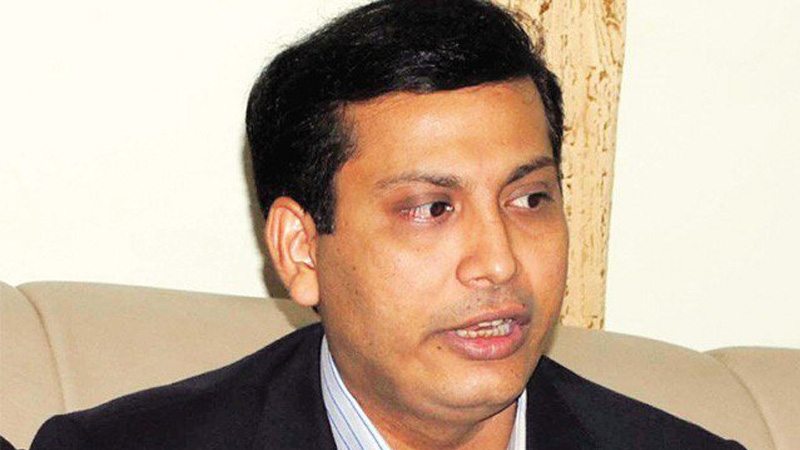Qasba Aligarh massacre: a leaf from Karachi’s violent history


Lahore: As #Kaptaanforkhi made it to top10 trends on social media platform Twitter on Thursday (yesterday), MQM-Pakistan leader Faisal Sabzwari posted a tweet with the hashtag #QasbaAligarhMassacre. He said, ‘can’t, won’t forget the #QasbaAligarhMassacre and the total ignorance and apathy of entire nation’.
On December 14, 1986, over 400 people had died in clashes in Qasba Aligarh area of Orangi Town. Most of the residents of the neighbourhood were Mohajir families, but there was a considerable pukhtun population in Orangi Town as well.
Speaking to Daily Times, Sabzwari recalls that he was in the middle of a game of cricket in the street outside his house when his attention was drawn towards dense black smoke rising in the sky from the Orangi Town direction.
“I don’t know who instigated the riots but the popular perception [of Qasba Aligarh incident] in our households was that pathans had attacked mohajirs,” he says. Back then, Sabzwari’s uncle, who lost his life in a targeted killing in 1994, was active in the then newly-formed Muhajir Qaumi Movement (MQM). From him and other elders, he got to know that the December 14 clash was in retaliation of an anti-encroachment and anti-drugs operation carried out by the Karachi commissioner and police a few weeks ago in Sohrab Goth area.
Sabzwari says the families whose loved ones died that day believed that the then Sindh governor, General Jahandad Khan, had a role in the clashes.
He says a lot more people had lost their lives and loved ones in the 1986 incident, compared to the May 12, 2007 clashes. Yet, the nation hasn’t paid as much attention to the 1986 incident. He doesn’t absolve MQM of responsibility in 2007. He says, “We [MQM] were in government in 2007. We share responsibility for the loss of lives but it was a collective failure. All political parties were involved in the armed clashes.”
He says that 1986 massacre was made possible by the complete failure of the state’s law enforcement apparatus. “There was no police to be seen anywhere in the area during the clashes. No inquiry commission got formed afterwards,” he says.
Awami National Party (ANP) Sindh general secretary Younas Buneri was a student leader in Karachi in 1986. Asked about his memory of the day when Qasba Aligarh burnt, he says he remained at his family home some 20 kilometres from the site of the clashes in the Jamia Goth market on Bandar Road (now known as M.A. Jinnah Road) all day. To dispel the impression that the December 14 incident was an all out war between pathan and muhajir communities, he stresses that the residential compound where he lived was also home to several muhajir families. That night, he recalls, his muhajir neighbours stayed up and stood guard to protect pukhtun families.
He traces the December 14 clashes all the way back to the bus accident in April 2015 in which a mohajir student named Bushra Zaidi had lost her life. He says it was an unfortunate incident and justice should have been served to the driver responsible for it, ‘but that does not change the fact that it was an accident’. But the Muhajir students organisation politicised the issue by distributing anti-pukhtun pamphlets throughout the city after the incident. This led to a series of riots where migrant workers from pukhtun and hazara areas in the north of Pakistan were attacked. “It was the ordinary workers on the street who bore the brunt,” he says.
For the wounds of the past to heal in the city’s present political moment, Buneri says that political freedoms need to be ensured to all residents and groups of the city. “Pukhtuns have suffered the most from terrorism. We want durable peace to return to the city. Rangers have improved the environment, but it is not their job. They are a paramilitary force and must not be deputed in cities,” he says.
Sabzwari agrees, but says that ground realities demand that Rangers remain posted in the city. “The police force has been politicised in the past decade. People from criminal gangs were recruited into the force,” he says.
He says on August 23 this year the MQM-Pakistan had announced its future course of action and clarified that it would remain non-confrontational and non-violent. “We have denounce violence and vowed to never be a part of violent activities,” he says.
However, he adds, that state institutions and other political parties need to reciprocate. “Petitions filed by MQM as well as ordinary citizens remain pending hearings on issues as crucial as the role of police in local governments and on the recently held national census. We have our reservations on these issues but the court doesn’t seem to be bothered,” he says.
Published in Daily Times, December 15th 2017.
Leave a Comment